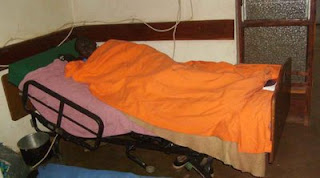Before the introduction of the ADRA LEFAM program, it was common to find children in areas of Malawi working in tobacco fields earning less than $5 a month. Often children were encouraged with offers of good jobs and enough income to support their families but were forced to work as free labour with only limited food and shelter in return. One report on child labour done by the ILO (International Labour Office), a branch of the UN, reported that in 2007, approximately 23.3% of children in Malawi participate in some form of labour.
Through the LEFAM program ADRA empowers individuals and communities to discuss the issues which are affecting them and through that dialogue find solutions to bring about the change that they themselves want. There is also an aspect of education on human rights, including that of children, and what their relevance is to each community. In one community, when they identified the practice of child labour as inhumane, the rights of children to safety, education and to be with family were discussed and used to further emphasise the impact of such activity.
With this combination of community dialogue and the human rights trainings the community decided that this was unacceptable practice and resolved to discourage those participating in it. The community bought this issue to the traditional leaders and together approached the offending farmers, informing them of the implications of their practice to employ children. Over a period of time, with the influence of the traditional leaders and pressure from community members, these farmers no longer engaged children in labour but are now employing men from the area and providing full remuneration for their work. Currently child labour, while not completely eliminated from this area, has been greatly reduced and together the community has seen major changes in attitudes and practice.
This is just one example of the impact of community dialogue sessions being implemented by ADRA LEFAM and the wide spread changes which can come when individuals work together as a community to try and implement change. ADRA aims not to solve the problems within a community but to empower communities to identify which issues they would like to change and give them the tools to do this that long after ADRA this process will still be taking place and communities working together to bring about positive change.
Author: Kerryn Lodo




